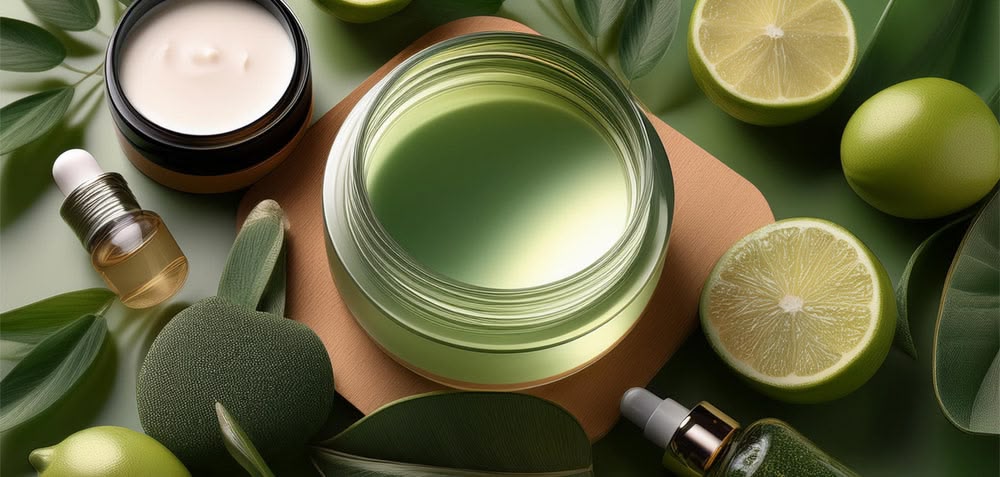
Skincare Ingredients: A Deep Dive
Understanding the importance of skincare ingredients
When it comes to skincare, the ingredients in your products can make a world of difference in the health and appearance of your skin. Understanding what goes into your skincare items can help you make informed choices that cater to your skin's specific needs. Research ingredients online or consult with a dermatologist or your esthetician to better understand what your skin requires.
Key ingredients to look for in skincare products
Ingredients like ceramides help to retain moisture, while glycolic acid exfoliates and brightens the skin. Peptides can boost collagen production, and antioxidants like Vitamin E protect the skin from environmental damage, hyaluronic acid promotes hydration, Vitamin C is for brightening, retinol for anti-aging, and niacinamide for improving the skin's texture. Each ingredient plays a specific role in enhancing the overall health of your skin:
-
Antioxidants: The Skin's Defense
Antioxidants play a vital role in protecting the skin against damage caused by free radicals. They help in reducing inflammation, repairing damage, and promoting overall skin health.
Pro Tip: Look for skincare products containing antioxidants like Vitamin E, Vitamin C, Green Tea Extract, and Resveratrol for added skin protection and rejuvenation.
-
Hyaluronic Acid: Hydration Hero
Hyaluronic Acid is a powerhouse ingredient known for its ability to attract and retain moisture in the skin, providing hydration and plumping effect. It helps in improving skin elasticity and reducing the appearance of fine lines and wrinkles.
Pro Tip: Opt for products with varying molecular weights of Hyaluronic Acid to ensure deep hydration at different layers of the skin.
-
Retinol: The Gold Standard
Retinol, a form of Vitamin A, is praised for its anti-aging benefits. It helps in promoting skin renewal, reducing fine lines, wrinkles, and hyperpigmentation, and improving overall skin texture and tone.
Pro Tip: Start with a lower concentration of Retinol and gradually increase usage to build skin tolerance and minimize irritation.
-
Vitamin C: The Brightening Agent
Vitamin C is a potent antioxidant that brightens the skin, evens out the complexion, and protects against environmental damage. It helps in stimulating collagen production, resulting in firmer and more radiant skin.
Pro Tip: Choose Vitamin C serums that are stabilized and formulated at an effective concentration to ensure maximum benefits for your skin.
-
Peptides: Building Blocks of Collagen
Peptides are amino acids that support collagen production in the skin, promoting firmness and elasticity. They help in reducing the appearance of fine lines and wrinkles, giving the skin a smoother and more youthful look.
Pro Tip: Look for products with a mix of different peptides to target various skin concerns and maximize collagen-boosting benefits.
-
Niacinamide: The Soothing Agent
Niacinamide, also known as Vitamin B3, offers a range of benefits for the skin. It helps in reducing inflammation, controlling sebum production, improving skin barrier function, and brightening the complexion. It is suitable for all skin types, including sensitive and acne-prone skin.
Pro Tip: Incorporate products with Niacinamide into your routine to address multiple skin concerns and boost overall skin health.
Ingredients to avoid in skincare products
For sensitive skin especially, certain ingredients can trigger irritation, redness, or allergic reactions. Common culprits to avoid include fragrances, sulfates, parabens, and alcohol. These ingredients can strip the skin of its natural oils, leading to dryness and sensitivity.
Pro Tip: Patch test new products on a small area of your skin to check for any adverse reactions before applying them all over your face.
How to properly read skincare product labels
Reading skincare labels can be overwhelming with complicated ingredient names. Look for key ingredients at the beginning of the list, as they are present in higher concentrations. Avoid products with a long list of chemicals and opt for simpler formulations to minimize the risk of skin irritation.
Pro Tip: Use online resources or skincare apps to decode complex ingredient names and understand their purpose in your products.
DIY skincare recipes with natural ingredients
Creating your skincare products using natural ingredients can be a fun and cost-effective way to pamper your skin. After all, many famous brands have started in a garage or a basement! Ingredients like honey, avocado, oatmeal, and aloe vera have soothing and nourishing properties that can benefit your skin without the risk of harsh chemicals.
Pro Tip: Perform a patch test even with DIY skincare recipes to ensure your skin doesn't react negatively to any natural ingredients.
